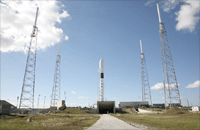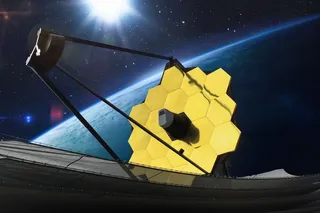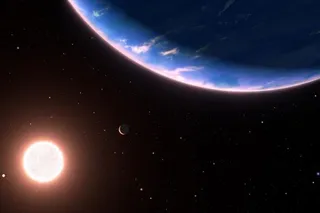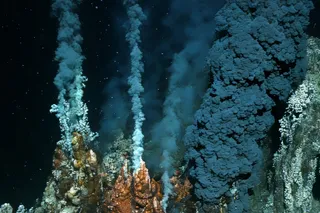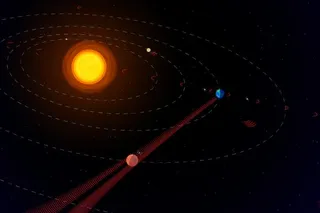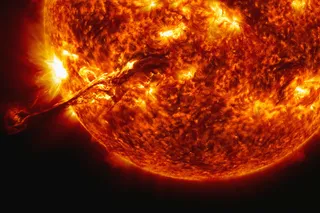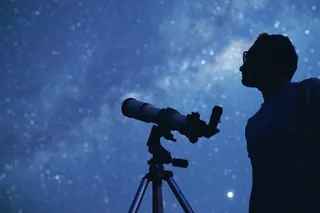The scene is set at Cape Canaveral: Atop the two-stage Falcon 9 rocket sits a dummy of the Dragon Spacecraft capsule that could one day taxi cargo and astronauts to and from the International Space Station. This will be the first launch of the the rocket, built by the privately-owned company SpaceX and funded in part by a $1.6 billion contract with NASA. The Falcon 9 should take off between 11 this morning and 3 in the afternoon (eastern daylight time), though the company has reserved a second launch window for tomorrow. Currently, a live feed of the launch pad shows the rocket primed to go, but announces a launch delay of unknown duration. SpaceX's ultimate goals for this test, as described on the company's website: "launch and separate from Falcon 9, orbit Earth, transmit telemetry, receive commands, demonstrate orbital maneuvering and thermal control, re-enter atmosphere, and recover Dragon spacecraft." ...
Today: The First Test Launch of the SpaceX Astronaut Taxi
The Falcon 9 rocket launch marks a significant step for SpaceX's commercial spaceflight goals. Will it succeed?
More on Discover
Stay Curious
SubscribeTo The Magazine
Save up to 40% off the cover price when you subscribe to Discover magazine.
Subscribe

